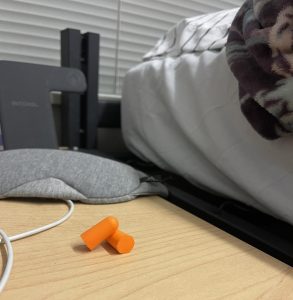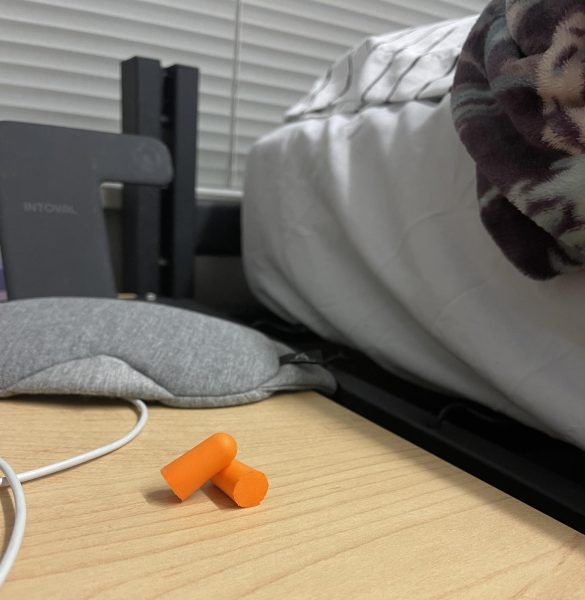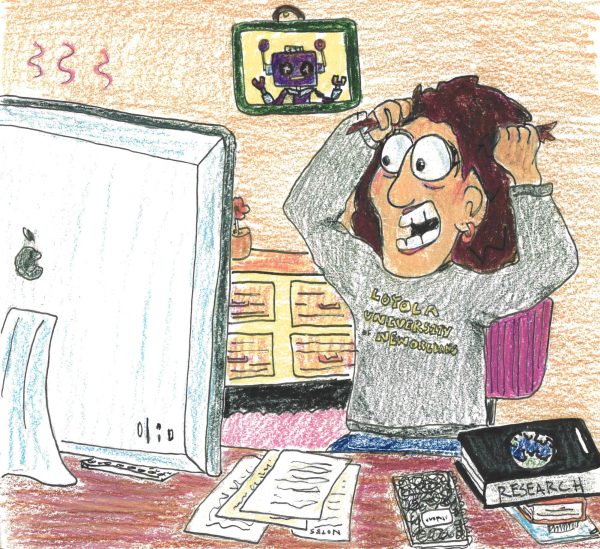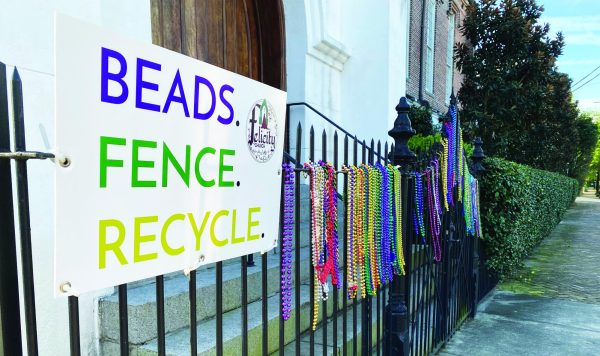Opinion: Barnes and Noble should restock condoms
Barnes and Noble College began selling condoms at the store in the beginning of the semester. After student backlash they removed the condoms from their shelves. Loyola’s bookstore. Photo credit: Alexis Reyes
September 9, 2018
I was delighted to hear that when Barnes and Noble took over Loyola’s campus bookstore, they started selling condoms to students — especially since our student health center is prohibited from distributing them. Condoms are a practical and common resource available at most universities, and it is unfortunate that Loyola is an exception. Catholic moral teaching prohibits artificial birth control, because sexual intercourse is supposed to only occur in the context of heterosexual marriage with the main goal to procreate. This doctrine is often cited as the reason why Loyola, a Catholic institution, has its hands tied on distributing condoms to their students. Pope Francis, a fellow Jesuit, and his predecessor Benedict XVI have implied some leniency in the use of condoms. They both were amidst major health epidemics, the Zika Virus and HIV/AIDS respectively, and generally stated that condom use is still immoral but a good first step in taking responsibility for one’s sexual actions. Both received heavy criticism from traditional sects of the Church for these comments. The Catholic Church still prohibits adherents and their sponsored institutions from endorsing and/or distributing contraception in any form.
Loyola taking condoms off the shelf of Barnes and Noble sends the message that the school favors dated doctrine over the wellbeing of their students. Several studies estimate that 77 percent of Americans have sexual intercourse before they turn 20 years old and 95 percent do so before marriage, according to cyclical data from the National Survey of Family Growth. It is dangerous and irresponsible to pretend that students are not engaging in sexual intercourse. Sex, especially premarital, is and always will be a basic aspect of life. Taking condoms off the shelves at the bookstore will not change this, but instead will encourage unsafe sex practices. It is already detrimental that our own student health center cannot freely distribute condoms, and taking them off the bookstore shelves just hits the nail on the head. Loyola’s Jesuit values which set it apart from traditional Catholic universities attracted me as a prospective student. Sex is a part of human nature, and cura personalis (caring for the whole individual person) should extend to caring for a students’ sexual health, even if it means challenging established doctrine.


















John Ritchie • Sep 10, 2018 at 3:19 pm
Pope John Paul II was very clear: “Paul VI affirmed that the teaching of the Church ‘is founded upon the inseparable connection, willed by God and unable to be broken by man on his own initiative, between the two meanings of the conjugal act: the unitive meaning and the procreative meaning.’ ”
The Apostolic Exhortation Familiaris Consortio re-emphasizes that, “When couples, by means of recourse to contraception, separate these two meanings that God the Creator has inscribed in the being of man and woman and in the dynamism of their sexual communion, they act as ‘arbiters’ of the divine plan and they ‘manipulate’ and degrade human sexuality — and with it themselves and their married partner — by altering its value of ‘total’ self-giving.
“Thus the innate language that expresses the total reciprocal self-giving of husband and wife is overlaid, through contraception, by an objectively contradictory language, namely, that of not giving oneself totally to the other. This leads not only to a positive refusal to be open to life but also to a falsification of the inner truth of conjugal love, which is called upon to give itself in personal totality.”
Andres Fuentes • Sep 9, 2018 at 4:21 pm
This opinion was submitted by Nicole Schmidt